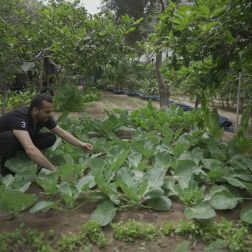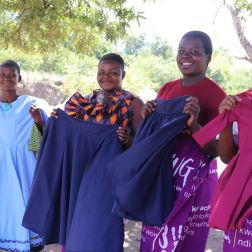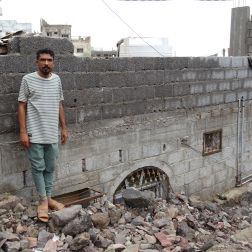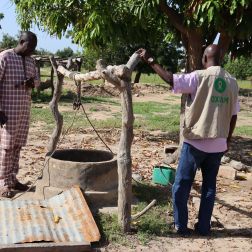- 6 mins read time
- Published: 22nd April 2020
As COVID-19 cases grow, displaced Rohingya face new threats that reflect continued persecution
COVID-19 has become an inescapable reality. At the time of writing, 28 April, there were 146-recorded cases Myanmar and 5,913 cases in Bangladesh. While for Oxfam, such announcements have been anticipated given the global nature of the pandemic, the spread of the virus in the both countries has nonetheless brought with it further fears and uncertainty for Rohingya refugees living on obth sides of the border.
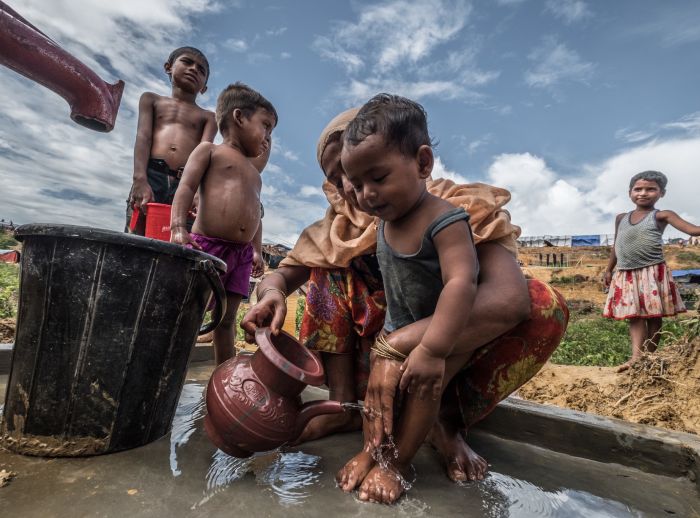
The virus is set to have a potentially devastating impact on the hundreds of thousands of people who have fled the violence and conflict.
Oxfam has ongoing humanitarian programming in many internal displacement camps, including the confined camps in Rakhine where an estimated 120,000 displaced Rohingya people have remained for the past eight years.
We see first-hand the extremely limited access to health care and other essential services internally displaced people (IDPs) in Myanmar have, as well as the underlying health challenges they face, from chronic malnutrition to cramped living conditions in inadequate shelters. All of these factors could significantly worsen if there is a COVID-19 outbreak. In the confined camps in Rakhine, basic preventative measures, such social distancing and self-isolation, remain impossible - with ten or more family members often living in a single shelter that measures about nine by five foot.
Please send doctors
Even hand washing is out of reach for some in the camps in light of the extremely limited water supply. Based on our ongoing discussions with the Rohingya community, before the threat of COVID-19 became apparent, it was already clear that they faced major challenges in terms of basic health care:
“Living here in the camps, everything gives us diseases. The camp infects everyone with diseases, and I have no money to see a doctor. We must sit and bear it and suffer without any medication. We have no means to go see the doctor even when we are sick.” — Rohingya woman, 28 years old, displaced and living in the confined camps in central Rakhine, Myanmar.
“Please send good doctors to the camps with enough medicine because here in the camps people here are losing their lives day by day. The camps make it very easy for people to contract diseases, but difficult to get medical treatment. The doctors do not see the patients and do not help us. And the patients are not receiving the right medicine for the illnesses they suffer.” — Rohingya woman, 35 years old, displaced and living in confined camps in central Rakhine, Myanmar
These women’s words reflect the extremely limited medical care in the camp, with doctors available only sporadically, and severe restrictions on the ability of people to leave the camps and access more specialised services at the nearby hospital. If someone in the camps falls ill and needs more specialised care, they must seek and receive official permission, which often takes several days, and they must pay a security escort to travel with them to the hospital located only a few kilometres away in town.
The complicated, time consuming and expensive process means that many are simply unable to access vital health care, even in an emergency. In this context, if people do become sick with the COVID-19 virus, it is likely they will have little to no ability to isolate themselves or seek professional care.
The possibility of an outbreak of the virus in these camps became that much clearer this week as a cases of COVID-19 were confirmed in Cox’s Bazar, the town located across the border in Bangladesh, which is home to the sprawling refugee camps where one million Rohingya refugees currently live after fleeing horrific violence in Myanmar in 2017.
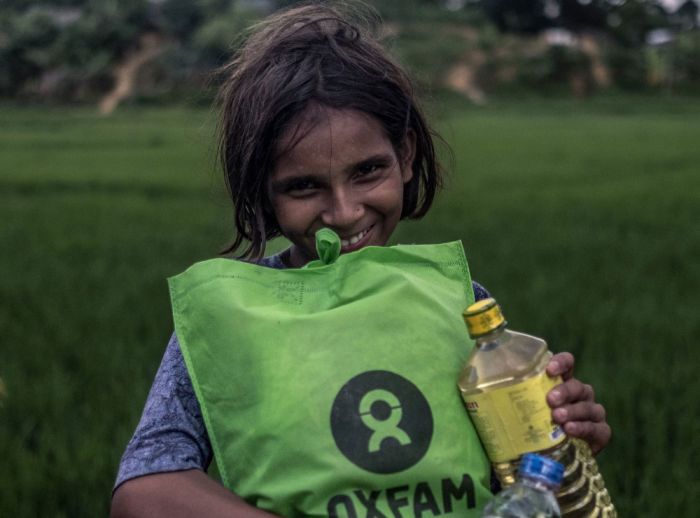
Oxfam is urgently scaling up humanitarian work
This is why we are urgently scaling up our humanitarian efforts in the Rohingya camps in Myanmar and Cox’s Bazar, Bangladesh.
With our partner Solidarités International, we are increasing public health promotion activities, including the urgent construction of an additional 1000 hand-washing stations, the distribution of 17,000 pieces of soap every month along with other basic hygiene items and sharing essential information about the prevention of the virus in Rohingya language through community networks and channels.
Similarly, in Cox’s Bazar, we have intensified and escalated hygiene promotion efforts, including prevention messaging with communities, while enhancing water and sanitation facilities. In a welcome move, the Office of the Refugee Relief and Repatriation Commissioner in Cox’s Bazar designated water and sanitation services as essential ones, enabling us to continue to deliver life-saving measures during the COVID-19 crisis. Continued humanitarian access for life saving activities in the camps on both sides of the border remains critical.
While Oxfam, along with governments and other humanitarian organisations are mobilising quickly to prevent the spread of the virus, another concern that could significantly worsen the spread of the COVID-19 virus is the shutdown of Internet services. Unlike most places in 2020, where we can check our mobile phones for immediate information about the virus, how to prevent it and what to do if you feel ill, Rohingya refugees have experienced the shutdown of internet services on both sides of the border.
Health crisis, human rights crisis
None of these issues — from the lack of protection, to the lack of essential services, to the lack of information — are new. Rohingya communities have been faced with an entirely precarious existence for years, struggling to access the very basics to survive. However, the threat of COVID-19 is putting the human rights crisis faced by Rohingya living in camps on both sides of the border into sharper focus. It starkly shows how equal rights are central to ensuring each human life is valued and protected, whether it’s amid a pandemic or not.
It’s by focusing on the rights of Rohingya and other displaced communities that we can increase the effectiveness of COVID-19 prevention efforts in the immediate and reduce vulnerabilities over the long term.
Alison Kent, Director of Advocacy & Communications, Oxfam in Myanmar.

This disease knows no borders and does not discriminate. For the world’s poorest and most vulnerable, the worst is yet to come as the coronavirus begins to establish itself and spread quickly through communities powerless to stop it, without access to water, sanitation or healthcare.
Together, we can save lives.
